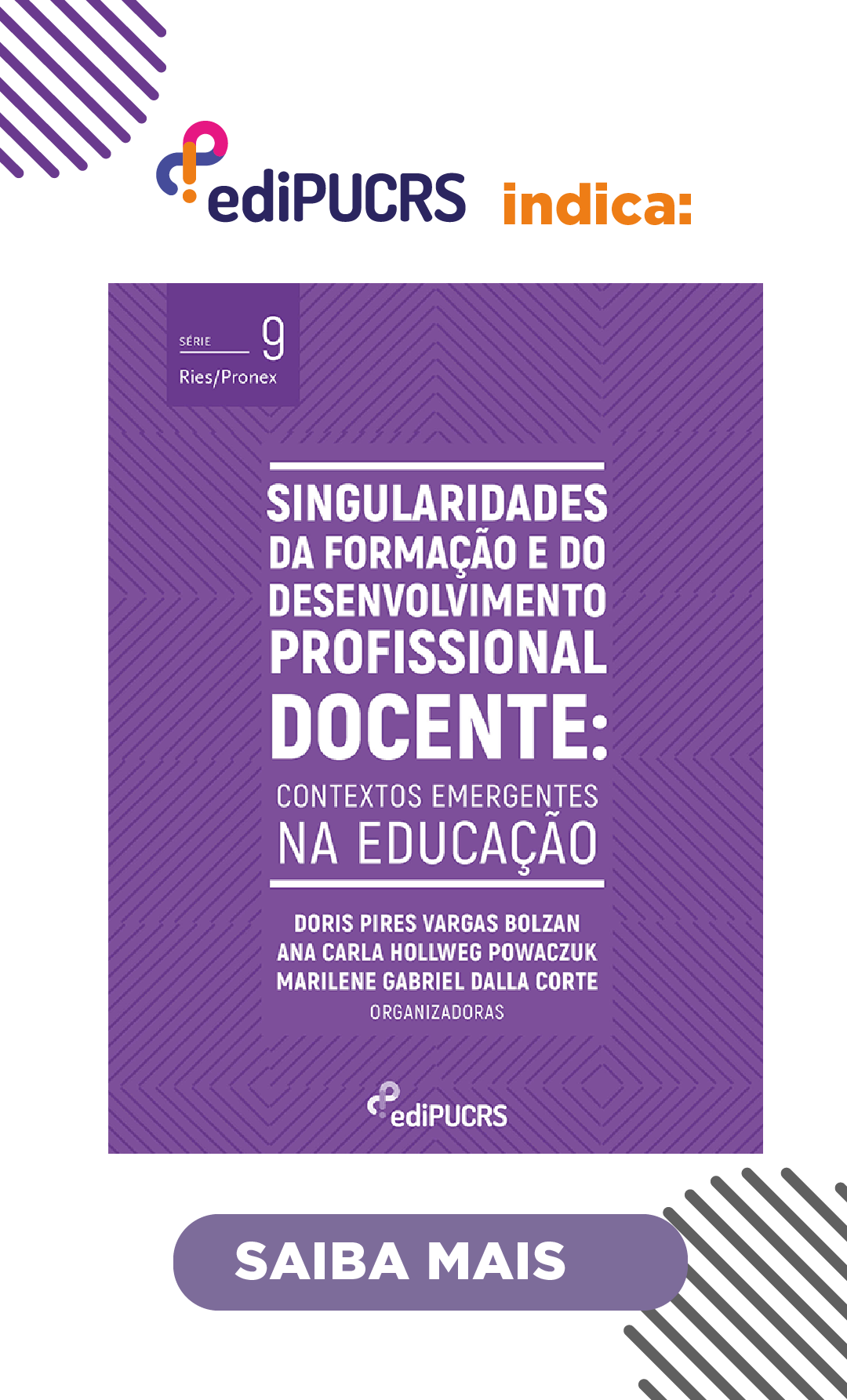Modeling in Higginson’s conception of Mathematics Education
relationships and implications involved in the process of teaching and learning Mathematics
DOI:
https://doi.org/10.15448/2179-8435.2023.1.45047Keywords:
Mathematical Modeling, Mathematics Education, Teaching and learning.Abstract
The article presents elements of Mathematical Modeling according to Burak (2004) guided by the conception of Mathematics Education according to the assumptions of Higginson (1980). The guiding question that arises is: What relationships and implications are perceived in relation to the dimensions when practices with Mathematical Modeling are developed using the assumptions of Mathematics Education according to Higginson, in the process of teaching and learning Mathematics? The overall objective is to point out and carry out considerations of the dimensions involved in the teaching of Mathematics according to Higginson, in practices with Mathematical Modeling in Burak’s conception. It is a bibliographic research and qualitative analysis. The analysis, of relationships and implications, is based on the elements provided by the movements of Modern Mathematics and Mathematics Education. It presents the elements of the Modern Mathematics Movement and the Mathematics Education Movement, and seeks to bring differentiating elements between Mathematics and Mathematics Education. It develops the main elements and assumptions of Burak’s (2004) Modeling design, principles and stages, as well as a description of each one of them and some of the references that support these procedures. It seeks to explain the dimensions of Mathematics, Psychology, Sociology and Philosophy contained in the assumptions of Mathematics Education, in carrying out practices with Modeling. Some results obtained show a Strong connection between the dimensions involved in Mathematics Education and the principles and stages of Modeling in Mathematics Education (BURAK, 1992). These relationships place Modeling in Mathematics Education as a differentiated pedagogical practice in the teaching of Mathematics in Basic Education.
Downloads
References
ÁVILA, G. O ensino de matemática. Revista do Professor de Matemática, São Paulo, n. 23, p. 1-7, 1. trim. 1993.
BURAK, D. A modelagem matemática e a sala de aula. In: ENCONTRO PARANAENSE DE MODELAGEM EM EDUCAÇÃO MATEMÁTICA, 1., 2004. Anais [...]. Londrina: UTFPR, 2004.
BURAK, D. Modelagem matemática: uma metodologia alternativa para o ensino de matemática na 5ª série. 1987. Dissertação (Mestrado em Ensino de Matemática) –Universidade Estadual Paulista Júlio Mesquita Filho, São Paulo, 1987.
BURAK, D. Modelagem matemática sob um olhar da educação matemática e suas implicações para a construção do conhecimento matemático em sala de aula. Revista de Modelagem na Educação Matemática, São José do Rio Preto, v. 1, n. 1, p. 10-26, 2010.
BURAK, D. Modelagem matemática: ações e interações no processo de ensino-aprendizagem. 1992. 460 f. Tese (Doutorado em Educação) – Universidade Estadual de Campinas, Campinas, 1992.
BURAK, D.; KLÜBER, T. E. Educação matemática: contribuições para a compreensão de sua natureza. Acta Scientiae, Canoas, v. 10, p. 93-106, jul./dez. 2008.
D’AMBRÓSIO, U. A educação matemática como disciplina. In: MIGUEL, A. et al. A educação matemática: breve histórico, ações implementadas e questões sobre sua disciplinarização. Revista Brasileira de Educação, n. 27, p. 70-93, set./dez. 2004. p. 71-73.
DEWEY, J. Democracia e educação: capítulos essenciais. Tradução: Marcus Vinicius da Cunha. São Paulo: Ática, 2007.
DEWEY, J. Democracia e educação: introdução à filosofia da educação. Tradução: Goldofredo Rangel; Anísio Teixeira. São Paulo: Nacional, 1979.
FIORENTIN, D. Alguns modos de ver e conceber o ensino de matemática no Brasil. Zetetiké, Campinas, v. 3, n. 1, p. 1-38, 1995.
GODFREY Harold Hardy. In: WIKIPÉDIA: a enciclopédia livre. [San Francisco: Wikimedia Foundation], 18 jul. 2023. Disponível em: https://pt.wikipedia.org/wiki/Godfrey_Harold_Hardy. Acesso em: 14 dez. 2023.
HARDY, G. H. What is Geometry? Presidential address to the Mathematical Association, Mathematical Gazette, v. 2, n. 175, p. 309-316, 1925.
HIGGINSON, W. On the foundations of Mathematics Education. Montreal; Quebéc: LM Publishing Association, 1980. Mimeografado.
KILPATRICK, J. Fincando estacas: uma tentativa de demarcar a educação matemática como campo profissional e científico. Tradução: Rosana G. S. Miskulin et al. Zetetiké, Campinas, v. 4, n. 5, p. 99120, jan./jun. 1996.
KLINE, M. O fracasso da matemática moderna. São Paulo: Ibrasa, 1976.
LIMA, E. L. Conceituação, manipulação e aplicações: os componentes do ensino da matemática. Revista do Professor de Matemática, São Paulo, n. 41, p. 1-6, 1999.
McLELLAN, J. A.; DEWEY, J. The Psychology of Number and its application to methods of teaching Arithmetic. New York: D. Appleton, 1895. (International education series, v. 33).
MIGUEL, A.; FIORENTINI D.; MIORIM, M. A. Álgebra ou geômetra: paro onde pende o pêndulo. Pro-Proposições, Campinas, v. 3, n. 1, p. 39-54, 1992.
MORIN, E. A cabeça bem-feita: repensar a reforma, reformar o pensamento. 8. ed. Rio de
Janeiro: Bertrand Brasil, 2003.
PIAGET, J. Psicologia e pedagogia. Tradução: Dirceu A. Lindoso; Rosa M. R. da Silva. Rio de Janeiro: Forense Universitária, 1970.
PSICOLOGIA COGNITIVA. In: Infopédia: dicionários Porto Editora. Porto: Porto Editora, c2023. Disponível em: https://www.infopedia.pt/$psicologia-cognitiva. Acesso em: 21 jan. 2023.
RIUS, E. B. Educación matemática: una reflexión sobre su naturaleza y sobre su metodologia. Educación Matemática, [s. l.], v. 1, n. 3, p. 30-36, 1989.
SANTOS, B. S. Um discurso sobre as ciências. 4. ed. São Paulo: Cortez, 2006.
SOARES, F. Movimento da matemática moderna no Brasil: avanço ou retrocesso? 2001. 192 f. Dissertação (Mestrado em Matemática Aplicada) – Pontifícia Universidade Católica do Rio de Janeiro, Rio de Janeiro, 2001.
WALLON, H. Les origines du caractère chez l’enfant. Paris: P.U.F., 1949.
Downloads
Published
How to Cite
Issue
Section
License
Copyright (c) 2023 Educação Por Escrito

This work is licensed under a Creative Commons Attribution 4.0 International License.
Copyright
The submission of originals to Educação Por Escrito implies the transfer by the authors of the right for publication. Authors retain copyright and grant the journal right of first publication. If the authors wish to include the same data into another publication, they must cite Educação Por Escrito as the site of original publication.
Creative Commons License
Except where otherwise specified, material published in this journal is licensed under a Creative Commons Attribution 4.0 International license, which allows unrestricted use, distribution and reproduction in any medium, provided the original publication is correctly cited.





